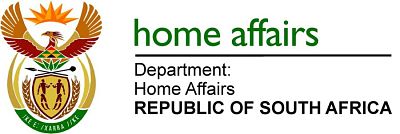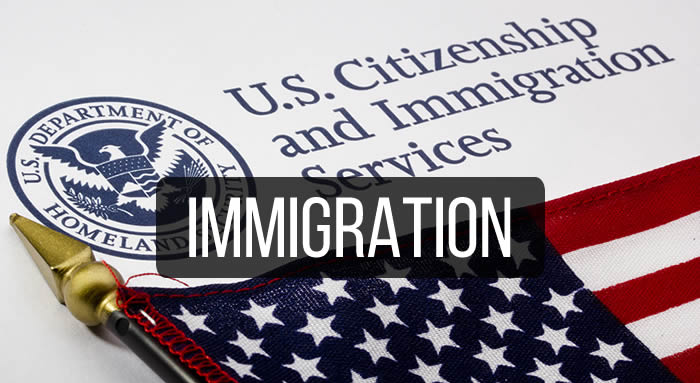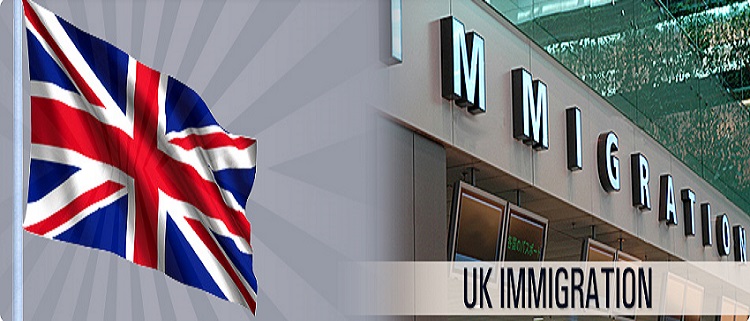(l) immigration control is performed within the highest applicable standards of human rights protection;
(m) xenophobia is prevented and countered;
(n) a human rights based culture of enforcement is promoted;
(o) the international obligations of the Republic are complied with; and
(p) civil society is educated on the rights of foreigners and refugees.
(Preamble substituted by section 1 of Act 19 of 2004)
BE IT ENACTED by the Parliament of the Republic of South Africa, as follows: –
TABLE OF CONTENTS
1. Definitions
OBJECTIVES AND STRUCTURES OF IMMIGRATION CONTROL
2. ……….
3. Delegation of powers
4. Immigration Advisory Board
5. Functions of Board
6. ……….
7. Regulations
8. Review and appeal procedures
ADMISSION AND DEPARTURE
9. Admission and departure
9A. Place of entry or exit
TEMPORARY RESIDENCE
10. Visas to temporarily sojourn in Republic
10A. Port of entry visa
10B. Transit visas
11. Visitor’s visa
12. ……….
13. Study visa
14. Treaty visa
15. Business visa
16. Crew visa
17. Medical treatment visa
18. Relative’s visa
19. Work visas
20. Retired person visa
21. Corporate visa
22. Exchange visa
23. Asylum transit visa
24. …..
PERMANENT RESIDENCE
25. Permanent residence
26. Direct residence
27. Residence on other grounds
28. Withdrawal of permanent residence permit
EXCLUSIONS AND EXEMPTIONS
29. Prohibited persons
30. Undesirable persons
31. Exemptions
ENFORCEMENT AND MONITORING
32. Illegal foreigners
33. Inspectorate
34. Deportation and detention of illegal foreigners
35. Duties with regard to conveyances
36. ……….
IMMIGRATION COURTS
37. ……….
DUTIES AND OBLIGATIONS
38. Employment
39. Learning institutions
40. Keeping of registers of lodgers by certain persons
41. Identification
42. Aiding and abetting illegal foreigners
43. Obligation of foreigners
44. Organs of state
45. Other institutions
MISCELLANEOUS
46. ……….
47. ……….
48. Foreigners erroneously allowed to enter Republic
OFFENCES
49. Offences
50. Administrative offences
TRANSITIONAL PROVISIONS
51. Transitional definitions
52. Functions of Department and Board
53. Existing visas
54. Repeal of laws
55. Short title and commencement
Schedule 1
Schedule 2
Schedule 3
1. Definitions and interpretation
(1) In this Act, unless the context otherwise indicates-
“admission” means entering the Republic at a port of entry in terms of section 9;
“advance passenger processing” means the pre-clearance of persons, in the prescribed manner,
prior to boarding conveyances by means of a boarding advice issued to owners or persons in charge
of conveyances;
(Definition of “advance passenger processing” inserted by section 2(a) of Act 13 of 2011)
“affiliate” means an associate member of a company or organisation;
(Definition of “affiliate” inserted by section 1(a) of Act 3 of 2007)
“Board” means the Immigration Advisory Board established by section 4;
“border” means the national borders of the Republic;
“branch” means a branch as contemplated in section 21A of the Companies Act, 1973 (Act No. 61 of
1973);
(Definition of “branch” inserted by section 1(b) of Act 3 of 2007)
“citizen” has the meaning assigned thereto in the South African: Citizenship Act, 1995 (Act No. 88 of
1995);
“conveyance” means any ship, boat, aircraft or vehicle, or any other means of transport;
“corporate applicant” means a juristic person established under the laws of the Republic which
applies for a corporate visa referred to in section 21;
(Definition of “corporate applicant” substituted by section 2(b) of Act 13 of 2011)
“court” means a magistrate’s court;
“customary union” …
(Definition of “customary union” deleted by section 2(c) of Act 13 of 2011)
“Department” means the Department of Home Affairs;
“depart or departure” means exiting the Republic from a port of entry to another country in
compliance with this Act;
(Definition of “depart or departure” substituted by section 1(c) of Act 3 of 2007)
“deport or deportation” means the action or procedure aimed at causing an illegal foreigner to leave
the Republic in terms of this Act;
“Director-General” means the Director-General of the Department;
“employer” includes a person contractually bound by the applicable employment contract as an
employer or, in the case of a juristic person, its chief executive officer or the person to whom such
officer has delegated the final responsibility in respect of personnel matters;
“foreign country” means a country other than the Republic;
“foreign state” means the juristic entity governing a foreign country;
“foreigner” means an individual who is not a citizen;
“illegal foreigner” means a foreigner who is in the Republic in contravention of this Act;
“immediate family” means persons within the second step of kinship, where marriage or a spousal
relationship is counted as one of such steps, but any common antecedent is not so counted;
“immigration officer” means an officer appointed by the Director-General to perform the functions of
either the permitting office, port of entry or inspectorate as contemplated in this Act;
(Definition of “immigration officer” substituted by section 2(d) of Act 13 of 2011)
“marriage” means –
(a) a marriage concluded in terms of-
(i) the Marriage Act, 1961 (Act No. 25 of 1961); or
(ii) the Recognition of Customary Marriages Act, 1998 (Act No. 120 of 1998);
(b) a civil union concluded in terms of the Civil Union Act, 2006 (Act No. 17 of 2006); or
(c) a marriage concluded in terms of the laws of a foreign country;
(Definition of “marriage” substituted by section 2(e) of Act 13 of 2011)
“Minister” means the Minister of Home Affairs;
“organ of state” means an organ of state as defined in section 239 of the Constitution;
“owner” means the owner of record and includes the charterer of a conveyance and any agent within
the Republic of the owner or the charterer;
“passenger name record” means the record of the data of a person as contemplated in section
35(3)(a) created by the owner or person in charge of a conveyance or his or her authorised agents for
each journey booked by or on behalf of any person;
(Definition of “passenger name record” inserted by section 2(f) of Act 13 of 2011)
“passport” means any passport or travel document containing the prescribed information and
characteristics issued-
(a) under the South African Passports and Travel Documents Act. 1994 (Act No. 4 of 1994):
(b) on behalf of a foreign state recognised by the Government of the Republic to a person who is
not a South African citizen;
(c) on behalf of any international organisation as prescribed, including regional or sub-regional
organisations, to a person who is not a South African citizen; or
any other document approved by the Minister and issued under special circumstances to a person
who cannot obtain a document contemplated in paragraphs (a) to (c);
(Definition of “passport” substituted by section 2(g) of Act 13 of 2011)
“permanent residence permit” means a permit contemplated in section 25, 26 or 27;
“port of entry” means a place designated as such by the Minister in terms of section 9A;
(Definition of “port of entry” substituted by section 2(h) of Act 13 of 2011)
“port of entry visa” means the authority to travel from a port of entry of another country to any port of
entry of the Republic for the purposes of admission into the Republic, as contemplated in section 10A;
(Definition of “port of entry visa” inserted by section 2(i) of Act 13 of 2011)
“premises” means any building, structure or tent, together with the land on which it is situated and
the adjoining land used in connection with it, and includes any land without any building, structure or
tent and any conveyance;
“prescribed” means prescribed by regulation;
“prohibited person” means any person contemplated in section 29;
“Republic” …
(Definition of “Republic” deleted by section 2(j) of Act 13 of 2011)
“spouse” means a person who is a party to –
(a) a marriage as defined in this Act; or
(Paragraph (a) of the definition of “spouse” substituted by section 2(k) of Act 13 of 2011)
(b) a permanent homosexual or heterosexual relationship as prescribed;
“status” means the status of the person as determined by the relevant visa or permanent residence
permit granted to a person in terms of this Act;
(Definition of “status” substituted by section 2(l) of Act 13 of 2011)
“subsidiary” means a subsidiary as defined in section 1(1) of the Companies Act, 1973 (Act No. 61 of
1973);
(Definition of “subsidiary” inserted by section 1(d) of Act 3 of 2007)
“temporary residence permit” …
(Definition of “temporary residence permit” deleted by section 2(m) of Act 13 of 2011)
“this Act” means this Act, including its schedules, and includes the regulations made pursuant
thereto;
“transit visa” means a transit visa contemplated in section 10B;
“undesirable person” means a person contemplated in section 30;
“visa” means the authority to temporarily sojourn in the Republic for purposes of-
(a) transit through the Republic as contemplated in section 10B;
(b) a visit as contemplated in section 11;
(c) study as contemplated in section 13;
(d) conducting activities in the Republic in terms of an international agreement to which the
Republic is a party as contemplated in section 14;
(e) establishing or investing in a business as contemplated in section 15;
(f) working as a crew member of a conveyance in the Republic as contemplated in section 16;
(g) obtaining medical treatment as contemplated in section 17;







